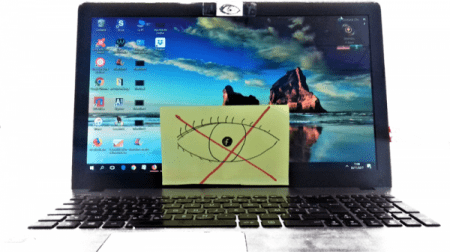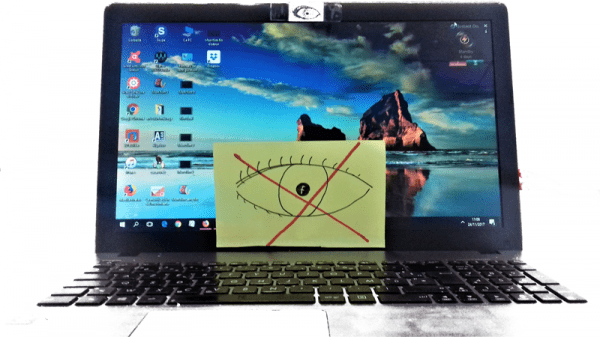No one would be surprised if I say that new technologies have changed our lives. Communicating and sharing with others have never been this easy. While we expose our personality on social media, the issue of how our personal information is being used and stored by digital platforms raise many questions.
Under its People Against Cyber Threats (PeopleACT)[1] campaign, the Malaysian Centre for Constitutionalism and Human Rights (MCCHR)[2] conducted a survey on online violence and privacy during DiGi’s Security Awareness Week. After having read the 78 anonymous answers, I have been quite surprised by some of the responses, particularly those related to privacy.
In one of the questions, the respondents were asked to rank selected digital communication or social media platforms such as Facebook, Instagram, WhatsApp, Skype, work emails, Twitter, YouTube, etc. which they believe afford better privacy. Twenty-eight per cent (28%) of the respondents chose Facebook[3] as the top social media platform that gives them most privacy because according to them, users are able to accept or decline a friend request and choose who can see their posts.
However, in my view, online privacy should cover more than just the content we intentionally display to other Internet users. I would personally rank Facebook as a social media platform that provide the least protection on privacy.
Let me explain my thoughts on the need for an extended definition of privacy when it comes to the online sphere and digital communication platforms. Commonly, the right to privacy refers to “the ability of individuals to determine who has information about them and how that information is used”[4].

On the first point, finding out about who retains information about us seems particularly challenging in the digital world. This is because of the huge amount of personal data being shared with third parties such as private companies, governments and other actors. In this context, protecting our online privacy cannot be limited to Internet users only but must also be extended effectively to any other person who can access our personal details. The question that we should all be wondering about is – who exactly can access our personal information?
I would like readers to think about it with the following example. Recently, a French journalist requested Tinder, an online dating app, to grant her access to the personal data collected by them since she registered with the app in 2013.[5] After her demand, Tinder sent her 800 pages of personal information including her Facebook likes, Instagram photos and Tinder chats. Was she aware that Tinder knew about her activities on other social medias? What does Tinder plan to do with all this information? Users need to understand the implication of shared platform between different social medias. Tinder, for instance, is integrated with Facebook, Instagram and Spotify.
Social medias collect a huge amount of personal information on purpose. It helps them to profile individuals, to know their tastes, their geographical locations and their habits, in order for them to carry out targeted marketing actions.
That brings me to the second point on the use of our personal information.
I think one of the most revealing examples on this point is Facebook’s interest based-advertising[6] which started in 2014. While browsing on the Internet – on a non-Facebook website or mobile app – websites that use Facebook services and technologies will transmit the information to Facebook that this specific user had visited their page. Facebook will be able to target advertisements accordingly based on that piece of information, even though the Internet user does not share much personal content or preference on their Facebook profiles. This disconnection between users voluntarily displaying private information on Facebook and what other commercial digital platforms know about them illustrates my point on the need for an extended definition of privacy in the online sphere.
Privacy is a human right, regardless of whether it is online or offline, let us claim it!
You can start by asking this – Would we let Facebook staff enter our homes to see how we live and what we “like”?
________________________________________
[1] PeopleACT is an UndiMsia! intiative. It is run by a group of human rights defenders from different organisations. Its mission is to make the cyber environment a safer, more respectful and empowering space for Malaysians through law reform and public awareness campaign. <http://www.mcchr.org/sla/>
[2] The Malaysian Centre for Constitutionalism and Human Rights (MCCHR) is a non-partisan and non-profit organisation. It was established on 19 March 2011 with the mission to provide an integrated approach towards the protection and promotion of human rights in Malaysia via its UndiMsia! and strategic litigation programmes. <http://www.mcchr.org/sla/>
[3] Respondents chose Facebook as the highest (28%), followed by work email (17%), WhatsApp (11%) and the rest is shared by all the other social media that the respondents view as digital communication platform which give them most privacy.
[4] ‘Exploring the Digital Landscape in Malaysia’, UNICEF (November 2014), <http://www.unicef.org/malaysia/UNICEF_Digital_Landscape_in_Malaysia-FINAL-lowres.pdf>
[5] I asked Tinder for my data. It sent me 800 pages of my deepest, darkest secrets, The Guardian (September 2017) <https://www.theguardian.com/technology/2017/sep/26/tinder-personal-data-dating-app-messages-hacked-sold>
[6] For more details on interest-based advertising on Facebook: <https://www.facebook.com/help/164968693837950>


I love social media this is useful information good working brother!
Online privacy is just a myth!Online privacy is just a myth!
Margaret, http://prowritinghelp.com/